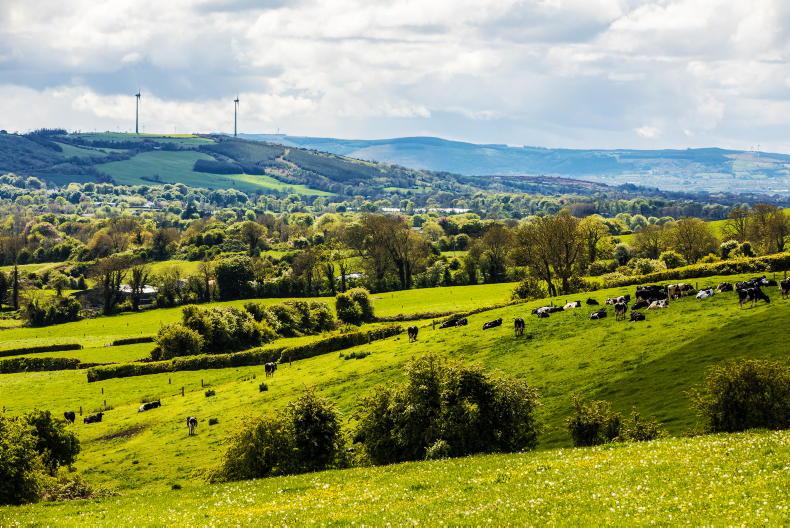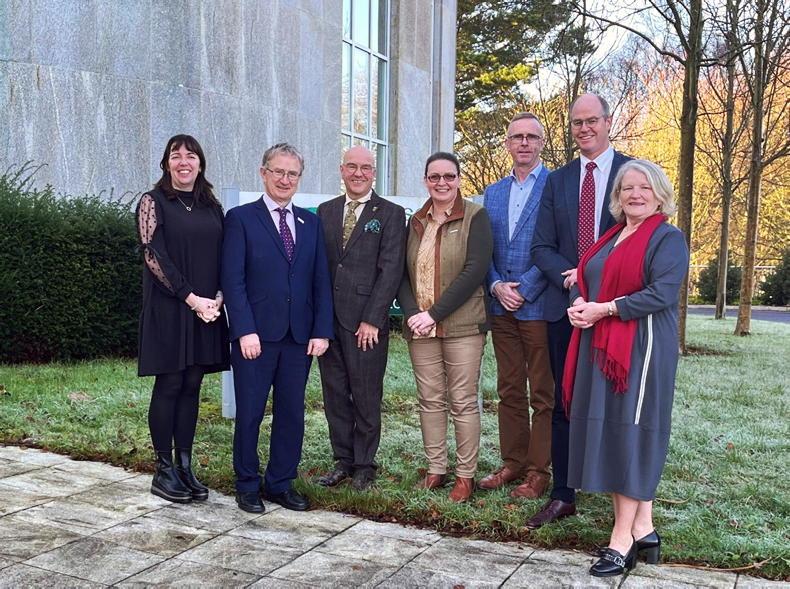It’s a comment used frequently to encourage people to participate in discussion: “There’s no such thing as a stupid question”. The premise is that just because one person may not know the answer, they should not be afraid to ask. In most cases, multiple people may not know the answer, but they too are too afraid to ask the “stupid question”. So, in effect, the person asking the “stupid question” may be doing a service to those around them. Food production is complex and it is foolhardy to assume that everyone “should know” how or where their food is produced.
Last week I attended a media event in Airfield Farm, the 38 acre urban farm near Dundrum, Co Dublin. The event was held to promote the estate’s call to recruit “food revolutionaries” – young people to join its new youth board. The drive will see the successful candidates working alongside the staff and board at Airfield to “shape its ambition to be at the cutting edge of food systems”. As our group walked the grounds, our guide explained the production systems on the farm – free-range pigs, Jacob sheep and Jersey cows. She didn’t shy away from Airfield being a working farm; with male calves sold off and the animals we passed eventually becoming the ingredients (meat), or supplying the ingredients (milk), in post-tour lunches.

Almond and soya milk
We stopped at the parlour as the milking and pasteurisation process was explained. And then it came, the “stupid question” – “do you produce any plant-based milk [sic: juice]?” The guide answered that the cows were the source of milk in Airfield – no more was said – and we moved on to the glasshouses. I probably rolled my eyes a bit thinking about the potential for soya, almonds or even oats to be produced on 38 acres in Dublin city. But as I strolled back I regretted that reaction as perhaps many of the group wanted to ask but didn’t. This was my bias, the assumption that everyone “should” understand the practicalities of farming. The problem is not with the person asking the question but with those who judge the person for asking – in this case me. Dublin city and county is home to 1.5m people and only 25,000 sheep. Access to farm education is being challenged in our capital between Dublin Zoo’s farm no longer co-operating on education with AgriAware and the Lord Mayor banning farm animals from the Mansion House’s live animal Christmas crib. As the urban-rural divide continues to widen, those who understand how the food chain operates have a responsibility to answer all “stupid questions” as leaving people afraid to ask a question serves no one.
Being afraid to ask is not reserved for food. Do you remember the Financial Regulator advert that ingrained the phrase “I don’t know what a tracker mortgage is!” into everyone’s psyche back in 2007. We might laugh and, aside from the scandal that ensued, how many of us did not know what a tracker mortgage was at the time and appreciated that the information was made available. Everyone “should know” about their food, everyone “should know” about tracker mortgages and everyone “should know” about pensions, but they don’t. The latter topic is a source of considerable confusion. We start a pensions series this week. Please send us your “stupid questions”. I can guarantee that by asking them you will be doing someone a service.
Read more
Cutting through the bull: milk v ‘mylk’
Eating for the body versus eating for the planet – are they one and the same?
It’s a comment used frequently to encourage people to participate in discussion: “There’s no such thing as a stupid question”. The premise is that just because one person may not know the answer, they should not be afraid to ask. In most cases, multiple people may not know the answer, but they too are too afraid to ask the “stupid question”. So, in effect, the person asking the “stupid question” may be doing a service to those around them. Food production is complex and it is foolhardy to assume that everyone “should know” how or where their food is produced.
Last week I attended a media event in Airfield Farm, the 38 acre urban farm near Dundrum, Co Dublin. The event was held to promote the estate’s call to recruit “food revolutionaries” – young people to join its new youth board. The drive will see the successful candidates working alongside the staff and board at Airfield to “shape its ambition to be at the cutting edge of food systems”. As our group walked the grounds, our guide explained the production systems on the farm – free-range pigs, Jacob sheep and Jersey cows. She didn’t shy away from Airfield being a working farm; with male calves sold off and the animals we passed eventually becoming the ingredients (meat), or supplying the ingredients (milk), in post-tour lunches.

Almond and soya milk
We stopped at the parlour as the milking and pasteurisation process was explained. And then it came, the “stupid question” – “do you produce any plant-based milk [sic: juice]?” The guide answered that the cows were the source of milk in Airfield – no more was said – and we moved on to the glasshouses. I probably rolled my eyes a bit thinking about the potential for soya, almonds or even oats to be produced on 38 acres in Dublin city. But as I strolled back I regretted that reaction as perhaps many of the group wanted to ask but didn’t. This was my bias, the assumption that everyone “should” understand the practicalities of farming. The problem is not with the person asking the question but with those who judge the person for asking – in this case me. Dublin city and county is home to 1.5m people and only 25,000 sheep. Access to farm education is being challenged in our capital between Dublin Zoo’s farm no longer co-operating on education with AgriAware and the Lord Mayor banning farm animals from the Mansion House’s live animal Christmas crib. As the urban-rural divide continues to widen, those who understand how the food chain operates have a responsibility to answer all “stupid questions” as leaving people afraid to ask a question serves no one.
Being afraid to ask is not reserved for food. Do you remember the Financial Regulator advert that ingrained the phrase “I don’t know what a tracker mortgage is!” into everyone’s psyche back in 2007. We might laugh and, aside from the scandal that ensued, how many of us did not know what a tracker mortgage was at the time and appreciated that the information was made available. Everyone “should know” about their food, everyone “should know” about tracker mortgages and everyone “should know” about pensions, but they don’t. The latter topic is a source of considerable confusion. We start a pensions series this week. Please send us your “stupid questions”. I can guarantee that by asking them you will be doing someone a service.
Read more
Cutting through the bull: milk v ‘mylk’
Eating for the body versus eating for the planet – are they one and the same?










SHARING OPTIONS